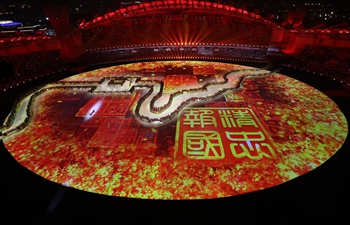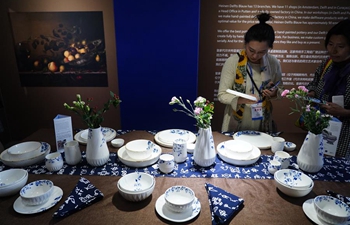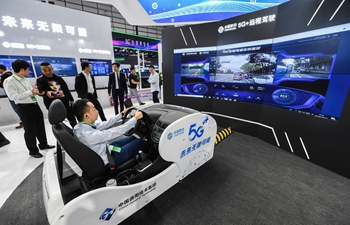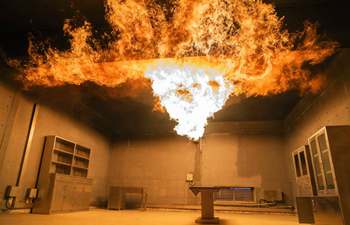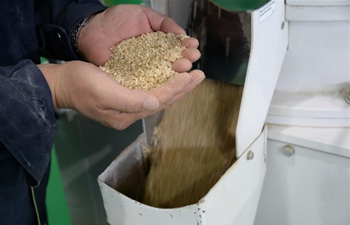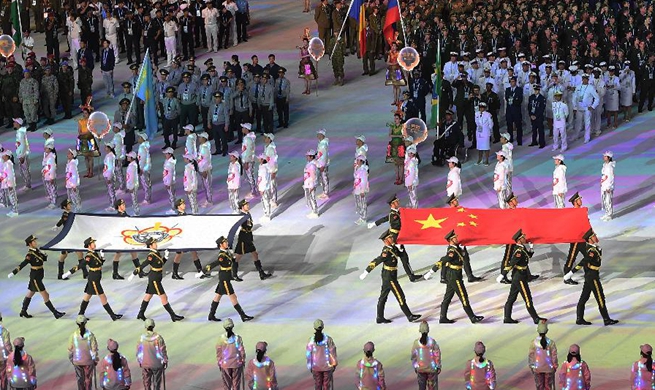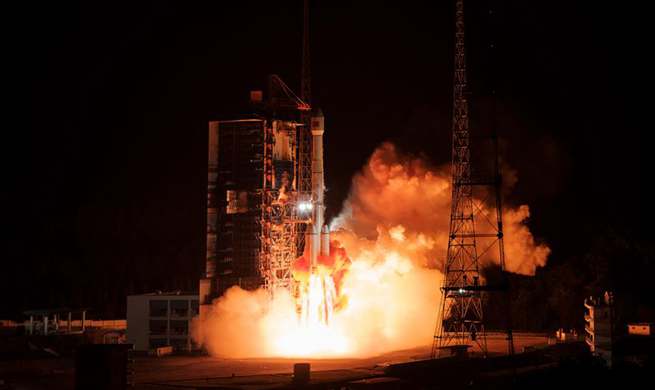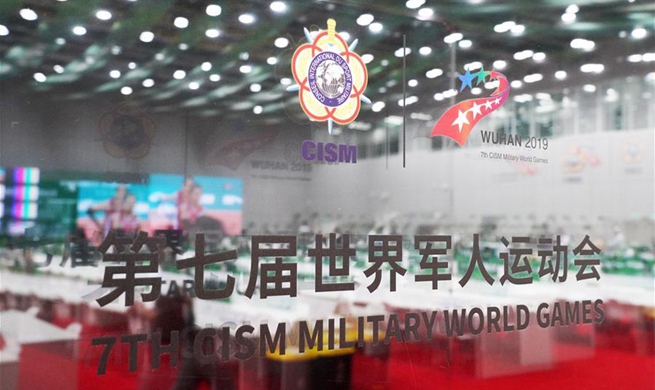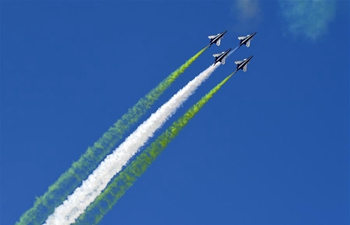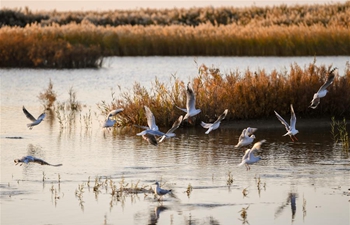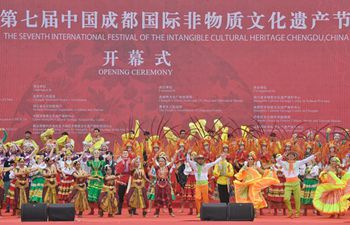ADDIS ABABA, Oct. 18 (Xinhua) -- The Chinese-built Ethiopia-Djibouti railway has won acclaim for facilitating landlocked Ethiopia's import-export necessities.
For the past more than one year, it has transported much-needed agricultural inputs to Ethiopia's agriculture-dominated economy.
Tilahun Sarka, Director-General of Ethiopia-Djibouti Standard Gauge Railway Share Company (EDR), said in a recent interview with Xinhua that the 752 km-long Africa's first transnational electrified railway is leveraging the smooth transportation of Ethiopia's major import and export commodities, mainly fertilizer and wheat.
"The railway is showing major progress in terms of facilitating Ethiopia's basic import-export activities as it significantly reduced both the travel cost and time from landlocked Ethiopia to ports in its neighboring Djibouti," Sarka told Xinhua.
The Ethiopia-Djibouti railway commenced its commercial operations for both passenger and freight services in January last year, eventually connecting landlocked Ethiopia to ports in the Red Sea nation of Djibouti.
The EDR director underscored the railway's achievements over the past one and a half years, with particular emphasis on easing the pressure in transporting the much-needed imported agricultural and food security inputs, mainly fertilizer and wheat, from ports in Djibouti all the way to the Lebu Railway Station on the outskirts of the Ethiopian capital Addis Ababa.
Figures from ERD show that the Ethiopia-Djibouti railway has been able to carry more than 70,000 tons of fertilizer from the Djibouti port to Ethiopia over the past few months, as the East African country embarked with its main harvesting season since May.
"Fertilizer is a very important commodity to Ethiopia's socio-economic wellbeing," Sarka said, adding "It is by far considered as a major imported priority item by the Ethiopian government."
Ethiopia - Africa's second populous nation with about 109 million total population, according to the World Bank's latest report - is an agrarian economy.
The UN Food and Agriculture Organization (FAO), which described Ethiopia as "one of the top-performing economies in Sub-Saharan Africa with an average growth rate of 11 percent over the last seven years," dubbed the agriculture sector as "the mainstay of the Ethiopian economy, and exports almost entirely relies on agricultural commodities."
Sarka, who dubbed fertilizer as a "political cargo," also said that "a failure to import the much-needed fertilizer would adversely affect Ethiopia's overall security, as far as igniting public uproar against the Ethiopian government.
Sarka also emphasized the joint Ethiopian government and EDR's future plan that envisaged "to significantly boost the railway's share in the transportation of fertilizer to the country."
"Both the Ethiopian government and EDR give particular emphasis to the smooth transportation of fertilizers from the Djibouti port to Ethiopia, as well as the export of other export-bound agricultural commodities from Addis Ababa and other parts of Ethiopia to the port," Sarka said.
Ethiopia imported a total of about 1.3 million tons of fertilizer during the just-concluded Ethiopian 2018-2019 fiscal year, according to figures from the Ethiopian government.
Built by two Chinese companies, the first 320-km of the project from Sebeta to Mieso was carried out by the China Railway Group Limited (CREC), while the remaining 423-km from Mieso to Djibouti port section was built by the China Civil Engineering Construction Corporation (CCECC).
The Ethiopia-Djibouti railway is presently managed by a consortium of Chinese companies - CREC and CCECC - for a period of six years undertaking railway operation and maintenance management activities.
According to Sarka, the six-year contract was given to the two Chinese firms mainly due to the shortage of electrified railway operation and management experience in the two involved countries.
